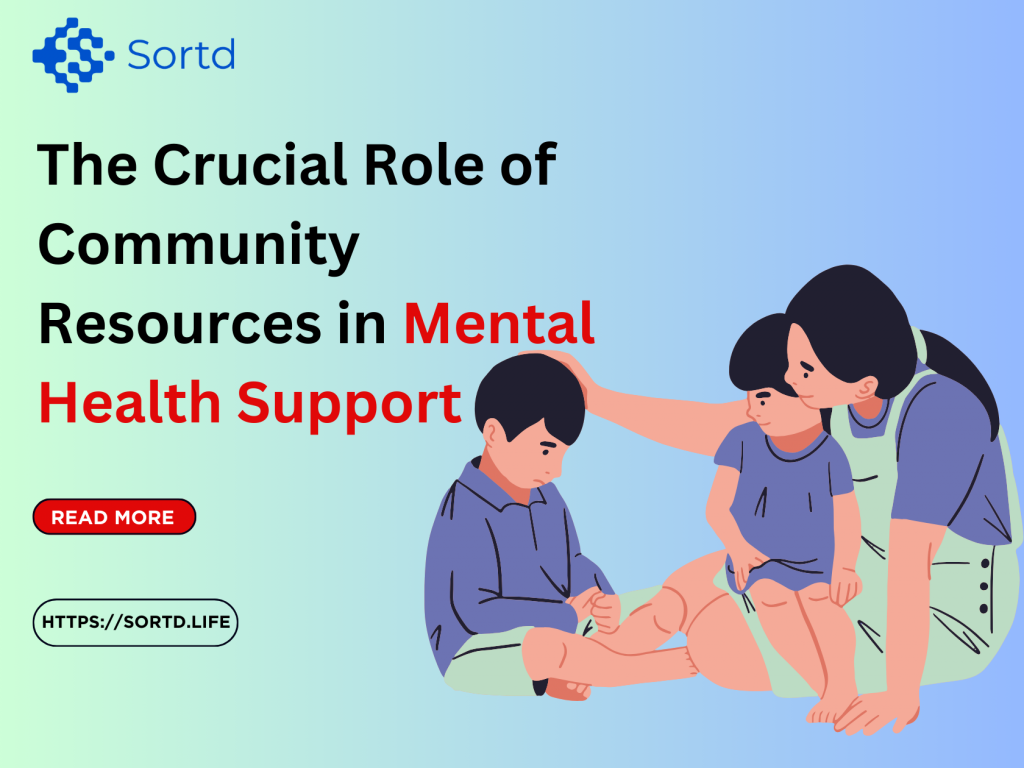
The Crucial Role of Community Resources in Mental Health Support
In a world that often moves at a fast pace, mental health has become a significant concern. As we navigate the complexities of modern life, the importance of community resources in providing mental health support cannot be overstated. This blog explores the pivotal role that community resources play in fostering mental well-being, offering a lifeline to those seeking support, understanding, and connection.
1. Accessible Support Systems:
Community resources act as accessible support systems, breaking down barriers that may exist in traditional mental health services. These resources are often located within neighborhoods, making it easier for individuals to seek help without facing logistical challenges.
2. Reducing Stigma:
Community-based mental health resources contribute to reducing the stigma surrounding mental health issues. By offering support within familiar and local environments, they help normalize discussions about mental well-being and encourage open conversations.
3. Culturally Tailored Services:
Community resources are well-positioned to offer culturally tailored mental health services. Understanding the unique needs and challenges of specific communities allows these resources to provide more personalized and effective support, acknowledging the diversity of experiences.
4. Peer Support Networks:
Many community resources facilitate peer support networks, creating spaces where individuals can connect with others facing similar challenges. Shared experiences foster a sense of belonging and reduce feelings of isolation, contributing positively to mental health.
5. Educational Programs:
Community resources often offer educational programs that raise awareness about mental health issues. By providing information and tools for self-help, these programs empower individuals to take an active role in managing their mental well-being.
6. Affordable and Low-Barrier Services:
Accessibility is key, and community resources often offer affordable or low-barrier services. This ensures that financial constraints do not prevent individuals from seeking the help they need, making mental health support more inclusive. Benefits of Therapy for Individuals with Post-Traumatic Stress Disorder
7. Preventive Initiatives:
Beyond crisis intervention, community resources focus on preventive initiatives. Through outreach programs and awareness campaigns, they aim to address mental health issues at their roots, promoting overall community well-being.
8. Collaboration with Other Services:
Community resources often collaborate with other social services, creating a comprehensive network of support. This interconnected approach acknowledges that mental health is intertwined with various aspects of life, such as housing, employment, and overall community health.
9. Local Expertise and Knowledge:
Community resources leverage local expertise and knowledge to better understand and address the unique challenges faced by residents. This localized approach fosters a sense of trust and ensures that mental health support is relevant to the community it serves.
10. Building Resilient Communities:
Ultimately, community resources contribute to building resilient communities. By investing in mental health support at the local level, we strengthen the fabric of society, creating environments where individuals feel supported, understood, and capable of facing life’s challenges.
Conclusion:
The importance of community resources in providing online mental health support cannot be emphasized enough. As we collectively work towards creating more compassionate and understanding communities, these resources serve as vital pillars, ensuring that no one has to face the complexities of mental health alone. By embracing and supporting these community-based initiatives, we take a significant step towards fostering a society that prioritizes the well-being of its members.
